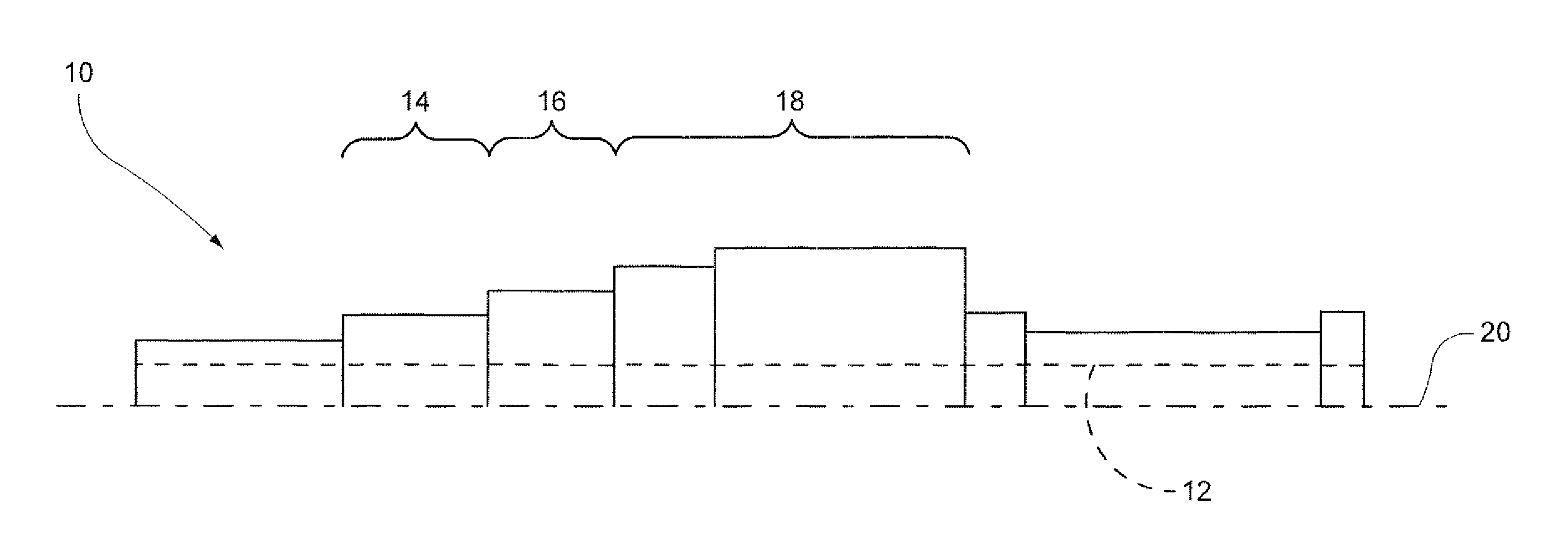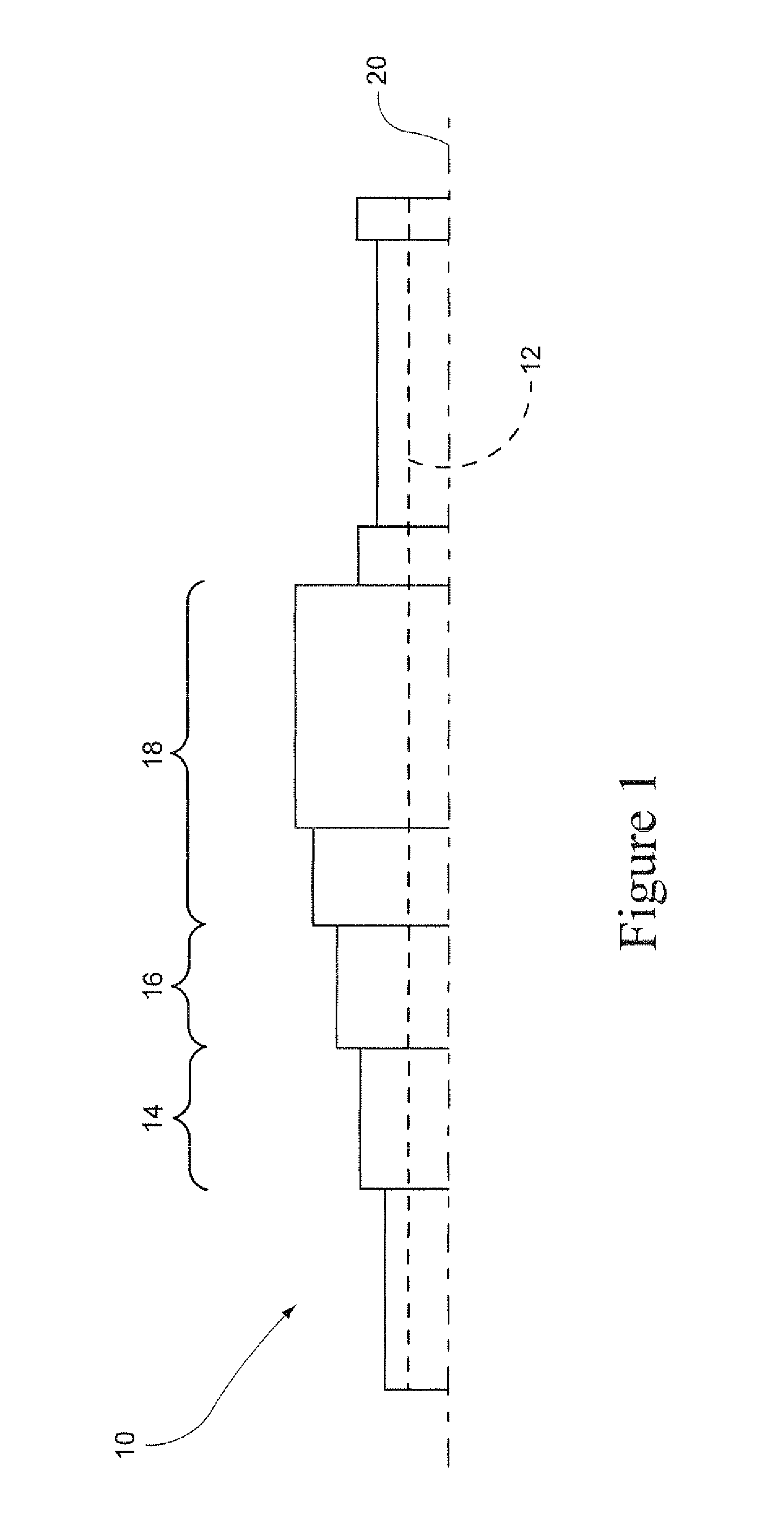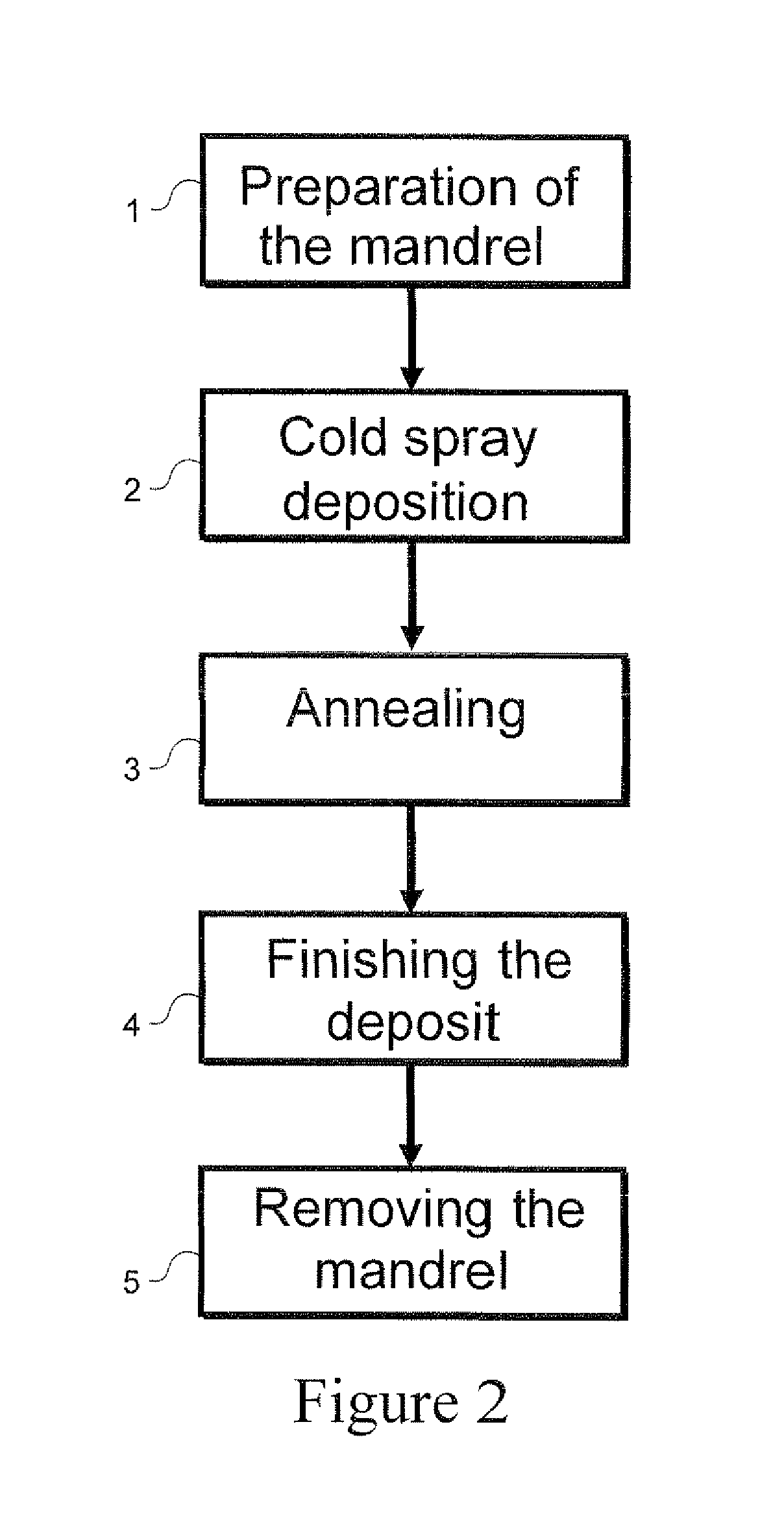Turbine rotor fabrication using cold spraying
a technology of turbine rotor and fabrication process, which is applied in the manufacture of stator/rotor bodies, forging/pressing/hammering apparatus, manufacturing tools, etc., can solve the problems of high strain rate of powder particles and achieve high strain rate, high strain rate, and high strength
- Summary
- Abstract
- Description
- Claims
- Application Information
AI Technical Summary
Benefits of technology
Problems solved by technology
Method used
Image
Examples
Embodiment Construction
[0013]FIG. 1 shows a partially-formed rotor 10, cold sprayed on a core shaft or mandrel 12. The rotor 10 is shown with built-up portions defining high pressure (HP), intermediate pressure (IP) and low pressure (LP) sections 14, 16, 18, respectively, along a geometric centerline or axis of rotation 20, using a cold-spray process described in further detail below.
[0014]With reference to the process chart shown in FIG. 2, in a first exemplary but non-limiting embodiment of the invention, the entire rotor 10 is manufactured using primarily an otherwise known cold spraying process. The first step 1 involves preparation of the core shaft or mandrel 12. Specifically, the core shaft or mandrel 12 is cleaned, surface finished and machined to the required profile and shape. For consistency of terminology, a “core shaft” is referred to below in terms of an embodiment where the core shaft remains part of the finished rotor. The core shaft may also be provided, however, in the form of a removabl...
PUM
| Property | Measurement | Unit |
|---|---|---|
| standoff distance | aaaaa | aaaaa |
| shape | aaaaa | aaaaa |
| axial length | aaaaa | aaaaa |
Abstract
Description
Claims
Application Information
 Login to View More
Login to View More - R&D
- Intellectual Property
- Life Sciences
- Materials
- Tech Scout
- Unparalleled Data Quality
- Higher Quality Content
- 60% Fewer Hallucinations
Browse by: Latest US Patents, China's latest patents, Technical Efficacy Thesaurus, Application Domain, Technology Topic, Popular Technical Reports.
© 2025 PatSnap. All rights reserved.Legal|Privacy policy|Modern Slavery Act Transparency Statement|Sitemap|About US| Contact US: help@patsnap.com



